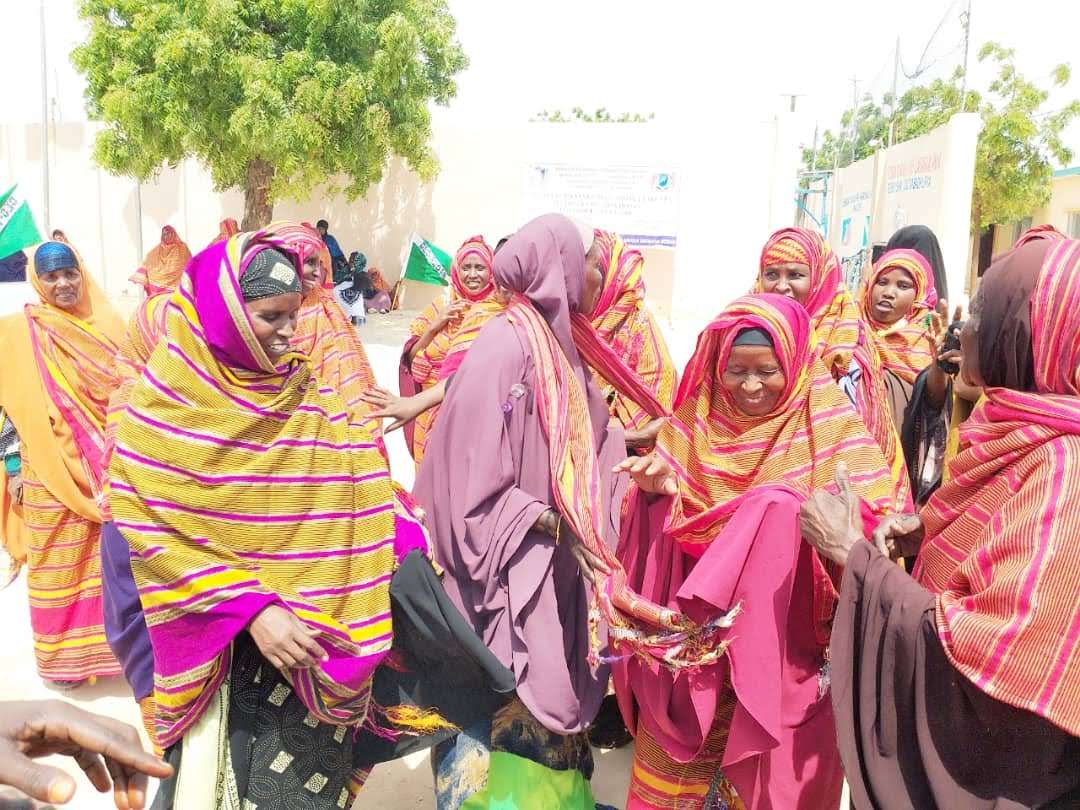
Located south of Mogadishu on the Indian Ocean, Somalia’s Lower Shabelle Region is home to Sabid Anole, a small town that was liberated from al-Shabaab in 2019. Despite liberation, Sabid Anole suffers from mass unemployment, access challenges, and is struggling to grow its economy.
USAID Somalia’s Transition Initiatives for Stabilization Plus (TIS+) project, implemented by DT Global, started working on community led stabilization and economic empowerment activities in Sabid Anole in 2020. When TIS+ started working in Sabid Anole, community members identified ways to support the economy—one of which was to rehabilitate a market for women. For local Sabid Anole women who sell and produce agricultural goods, the market is a primary source of income. Although a market already existed in the town, it had fallen into disrepair due to the presence of al-Shabaab. Al-Shabaab’s control over the area not only limited trade between Sabid Anole and the surrounding towns and villages, but also made the town almost inaccessible to the Somali government and international donors who sought to access the region to respond to citizen needs.
The Sabid Anole market is the second women’s market that TIS+ has supported in Somalia. In 2018, the program rehabilitated a purpose-built women’s market in Afmadow District, located in southern Somalia’s Jubbaland State, bordered by Kenya to the west, and the major regional port city of Kismayo to the southeast. The Afmadow community and District Administration identified the women’s market as a priority during the TIS+ Community Consensus Building Sessions.
The TIS+ project developed its Community Consensus Building approach to encourage community dialogue with government, establish community priorities, and enable community ownership of shared built infrastructure investments. Community Consensus Building Sessions (CCBS) represent a key method that TIS+ uses to gain buy-in from both the community and the local government when planning activities in a new area, as they give communities the opportunity to work with government representatives to prioritize needs, and in doing so, build their ownership of and participation in solutions to and for those needs. Key to this approach is the meaningful inclusion of women, youth, and other marginalized voices, so that all stakeholders have a seat at the table and are given the space to voice their priorities.
One of TIS+’s core objectives is to increase the social and political inclusion of marginalized groups. The TIS+ activities work to enhance social cohesion at several different levels, including between local government and communities. Infrastructure investments, such as the construction and rehabilitation of women’s markets, specifically work to increase women’s participation in both community decision making and economic growth, which in turn increases the overall community’s economic empowerment. Since the markets are run and operated by the women in the communities, they provide an avenue for women to gain increased income, economic empowerment, and ultimately more influence in the local economy and community.
When TIS+ helped to create the Afmadow women’s market, we expected the market would help to enhance social cohesion and collaboration between the local authorities and create a more enabling environment for livelihood improvement for the citizens, especially the women. A little more than a year later, the market now serves as a trading point for around 100 traders, mostly women, who sell produce and other goods for community member and travelers through the community.
When the Sabid Anole market rehabilitation is complete, TIS+ expects similar results. Rehabilitation will allow the market to function at full capacity, boosting economic activity in the town, increasing social cohesion by elevating the status of women as financial contributors to the community, and creating platforms for interaction between the community and the local government representatives credited with providing these key infrastructure investments to Sbiad Anole’s citizens.